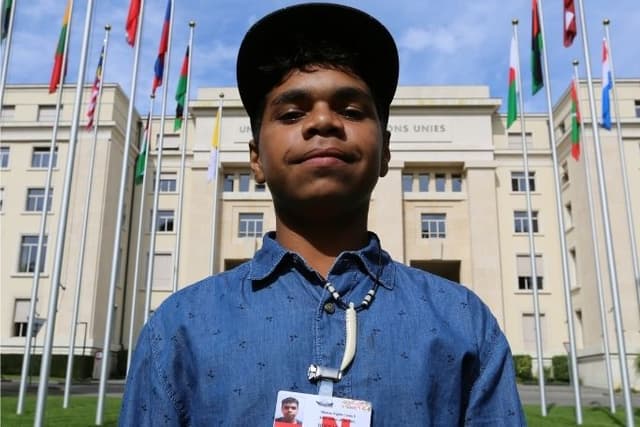
In My Blood It Runs - The Rights of the Child
Lesson3 of 5 in this unit
SecondaryYear 9 - 10EnglishHumanities and Social SciencesCivics and CitizenshipAboriginal and Torres Strait Islander Histories and CulturesSocialIndigenous Education
Summary
Lesson guides and printables
Lesson Plan

Student Worksheet

Teacher Content Info
